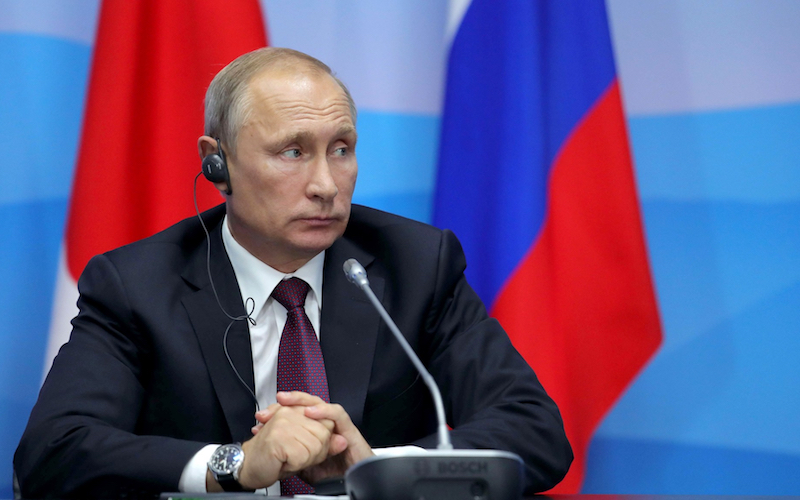
Kremlin’s Karabakh Gambit
In 2016 the violent flare-up between Azerbaijan and Armenia over the mountainous enclave of Nagorno-Karabakh left more than 200 dead and swept both societies in a pro-war frenzy.
Over the last years, the worldwide situation has so overwhelmingly changed that Russia has made attempts to encourage strategic partnerships with the regional Muslim powerhouses such as Iran and Turkey, and particularly in this case Azerbaijan.
One can speak of Armenia as being an “obstructionist” in Nagorno-Karabakh and Azerbaijan as an “integrationist,” which are significant differentiating notions, especially when considering that Kremlin’s “Eurasian” foreign policy leans towards “integration.” As a matter of fact, the obstructionist and integrationist labels can also be applied as it relates to these two country’s roles in either deterring or serving the Kremlin’s unparalleled rapprochements with Iran and Turkey.
Armenia is prone to relying on a discordant “Clash of Civilizations” narrative to suggest that its fellow Orthodox allies in Russia are indebted to support it out of “Christian solidarity” against Muslims. Some voices from Yerevan even declare that their state is the only thing standing in the path of the allegedly anti-Russian strategy of “Pan-Turkism” which they say poses an existential threat to Slavs. Azerbaijan on the other hand doesn’t have to resort to guilt-tripping the Kremlin and alarming it in order to advance its strategic interests, as these overlap with the Kremlin’s own and aren’t abnormal to Moscow like what Yerevan is keen to do.
For instance, Azerbaijan is seeking to become a bridge between Russia, Iran, Turkey and India through the North-South Transport Corridor, so there’s more of an effective integration motive for Kremlin to favor Baku’s stance on the Nagorno-Karabakh conflict than to adhere to Armenia’s obstructionist role.
The unsettled Nagorno-Karabakh conflict, perpetuated to this day by Yerevan’s persistent stance, despite Armenia’s ironic refusal to “recognize” the self-proclaimed “independence” of its own proxy puppet state, perilously hinders the multipolar progression of Eurasian integration by serving as a tinderbox situated in the heart of the Great Power trio of Russia, Iran, and Turkey.
Armenia is awkwardly moving towards its own objective real-life “neglect” and “betrayal” of Moscow as it navigates to balance between its traditional Russian ally and the West, carelessly flirting with the EU and NATO which draw into question its legal and tacit pledges to the Eurasian Economic Union and CSTO. It should be noted that Armenia is firmly opposed to changing the status quo in Nagorno-Karabakh, which makes Yerevan the foremost barrier to peacefully resolving this conflict.
Furthermore, unlike previous efforts, the Kremlin’s latest attempt seems to have some chance of success, as both the internal circumstances in Azerbaijan and Armenia and the regional context have transformed. Both countries are going through harsh economic and social struggles and they cannot count on backing from other external actors.
The rise of Iran’s prominence and ambitions since the abolition of sanctions has also encouraged the Kremlin. Tehran recently expressed a willingness to mediate the Karabakh conflict which motivated the Kremlin to adapt a policy of facts on the ground, as it wants to avoid another regional player joining in the game. A solution to the Karabakh conflict will also bolster Moscow’s influence on Turkey.
As a result, Kremlin’s relations with Yerevan and Baku will continue to be dogged by their respective approaches towards peacefully resolving the Nagorno-Karabakh conflict. Given that Yerevan is strongly opposed against both of these principles; the Kremlin will have no choice but to view it as being an obstructionist actor, particularly in terms of hindering Russia’s pro-Eurasian strategy course, whereas Baku will be positively seen as enabling these game-changing continental dynamics.

